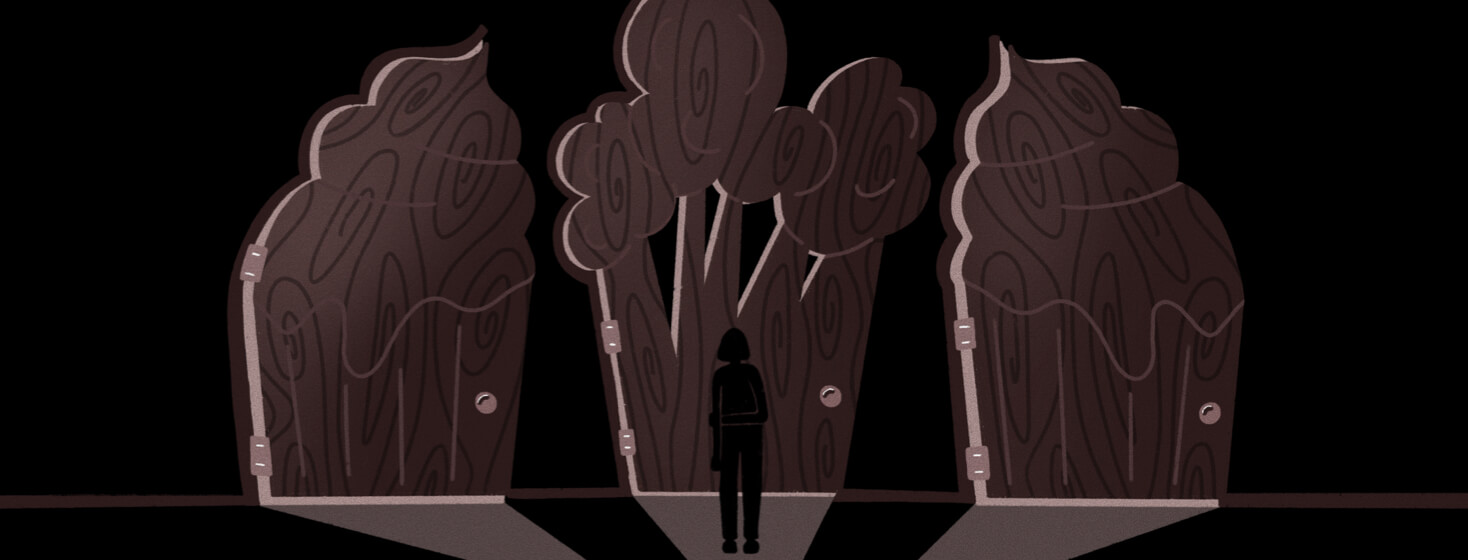Eating Disorder and RLS
I have an eating disorder.
I have restless legs syndrome (RLS).
At first glance, this may sound like apples and oranges, but hear me out; there is a shaky connection.
My eating disorder began at 4 weeks old
I am 56 years old. When I state that I have an eating disorder (ED), people often ask when it started. For me, the answer is simple – when I was 4 weeks old. That’s when my mother put me on a diet. From that point forward, I did not know what it was to satisfy hunger naturally or to feel comfortable in the body I was blessed with.
The good news is, I am really well now.
I also have restless legs syndrome (RLS), and while they are independent of each other, there has been a lot of interaction between them over the years.
Diet restriction is sometimes part of treating RLS
One of the many things you hear about how to treat RLS is to manage your diet. Alcohol, caffeine, sugar, and some preservatives in particular are known to have a negative impact on that overwhelming urge to wiggle, wriggle, jiggle.
When you have an ED (and I have dabbled in all the eating disorders, but primarily bulimia and binge eating) food is an obsession. You think about food day in and day out. Night in, night out. Regardless of whether or not you’re eating.
In fact, the less you eat, the more you think about food. So, when it comes to intentionally omitting particular foods from your diet, it is quite problematic. Having an ED is all about overcoming the natural instinct to eat, and being told it is important to avoid particular foods just makes them all the more appealing. And having to forsake them creates a passionate fixation on the exact thing you don’t want.
The binge-restrict cycle and compulsive exercise
I went through enormous periods of time where I eliminated caffeine, alcohol, and sugar — years, in fact. But there was always a sense of deprivation, and eventually, that feeling overcame common sense and I fell into the familiar binge-restrict cycle. Starve myself until I could no longer bear it and binge until I was physically ill. Repeat.
Excessive consumption of sugar, in particular, led to an increase in my RLS symptoms, which led me to compulsive exercise. Movement does provide very momentary relief from RLS, so if you’re constantly moving, there is constant relief. At least it worked that way for me for many years, until I developed nerve pain to accompany my RLS – but that’s a story for another day.
The constant urge to move impacted my ED treatment
When I was in the eating disorder clinic, we were expected to keep very still. It is common for anorexic patients in particular to constantly move in an attempt to be endlessly burning calories. As I have RLS and have an irrepressible urge to move all the time, it has never been clear to me if I have underlying calorie-burning motives as well. But being in the clinic, we were not allowed to shake the floorboards at every available opportunity.
I have to confess that the only reason I got through that period and remained vaguely sane (in fact, my mental health did improve exponentially) is that I was on large doses of benzodiazepines, which repressed the need to move.
I will always be conscious of my RLS and ED
That was several years ago. Now, I am very well, physically and psychologically. I still have RLS, but it is well-managed at nighttime with medication, and during the day I often don’t notice it.
I exercise enough to maintain good health, but not enough to feed an eating disorder. My food intake is balanced, and while I do dabble in the occasional coffee and chocolate, I do so in moderation and with the full knowledge that my evening may be more restless than desired. But I no longer have an obsession with bingeing or restricting anything – for any reason.
I don’t know that I will ever be fully "cured" of RLS or an ED; they are things I will always be conscious of and working towards managing effectively. But I do know they are currently well-managed, and for that I am mighty grateful.

Join the conversation